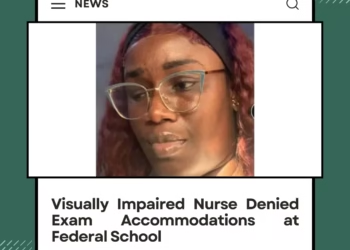One of the main ways nurses establish trust with patients is through communication. Because nurses are likely to have the most direct contact with patients, effective nurse-patient communication is critical. Nurses can utilize proven therapeutic communication techniques that promote quality care.
What Is Therapeutic Communication?
Therapeutic communication is a collection of techniques that prioritize the physical, mental, and emotional well-being of patients. Nurses provide patients with support and information while maintaining a level of professional distance and objectivity. With therapeutic communication, nurses often use open-ended statements and questions, repeat information, or use silence to prompt patients to work through problems on their own.
Therapeutic Communication Techniques
There are a variety of therapeutic communication techniques nurses can incorporate into practice.
Using Silence
At times, it’s useful to not speak at all. Deliberate silence can give both nurses and patients an opportunity to think through and process what comes next in the conversation. It may give patients the time and space they need to broach a new topic. Nurses should always let patients break the silence.
Accepting
Sometimes it’s necessary to acknowledge what patients say and affirm that they’ve been heard.Acceptance
isn’t necessarily the same thing as agreement; it can be enough to simply make eye contact and say “Yes, I understand.” Patients who feel their nurses are listening to them and taking them seriously are more likely to be receptive to care.
Giving Recognition
Recognition acknowledges a patient’s behavior and highlights it without giving an overt compliment. A compliment can sometimes be taken as condescending, especially when it concerns a routine task like making the bed. However, saying something like “I noticed you took all of your medications” draws attention to the action and encourages it without requiring a compliment.
Offering Self
Hospital stays can be lonely, stressful times; when nurses offer their time, it shows they value patients and that someone is willing to give them time and attention. Offering to stay for lunch, watch a TV show, or simply sit with patients for a while can help boost their mood.
Giving Broad Openings
Therapeutic communication is often most effective when patients direct the flow of conversation and decide what to talk about. To that end, giving patients a broad opening such as “What’s on your mind today?” or “What would you like to talk about?” can be a good way to allow patients an opportunity to discuss what’s on their mind.
Active Listening
By using nonverbal and verbal cues such as nodding and saying “I see,” nurses can encourage patients to continue talking. Active listening involves showing interest in what patients have to say, acknowledging that you’re listening and understanding, and engaging with them throughout the conversation. Nurses can offer general leads such as “What happened next?” to guide the conversation or propel it forward.
Seeking Clarification
Similar to active listening, asking patients for clarification when they say something confusing or ambiguous is important. Saying something like “I’m not sure I understand. Can you explain it to me?” helps nurses ensure they understand what’s actually being said and can help patients process their ideas more thoroughly.
Placing the Event in Time or Sequence
Asking questions about when certain events occurred in relation to other events can help patients (and nurses) get a clearer sense of the whole picture. It forces patients to think about the sequence of events and may prompt them to remember something they otherwise wouldn’t.
Making Observations
Observations about the appearance, demeanor, or behavior of patients can help draw attention to areas that might pose a problem for them. Observing that they look tired may prompt patients to explain why they haven’t been getting much sleep lately; making an observation that they haven’t been eating much may lead to the discovery of a new symptom.
Encouraging Descriptions of Perception
For patients experiencing sensory issues or hallucinations, it can be helpful to ask about them in an encouraging, non-judgmental way. Phrases like “What do you hear now?” or “What does that look like to you?” give patients a prompt to explain what they’re perceiving without casting their perceptions in a negative light.
Encouraging Comparisons
Often, patients can draw upon experience to deal with current problems. By encouraging them to make comparisons, nurses can help patients discover solutions to their problems.
Summarizing
It’s frequently useful for nurses to summarize what patients have said after the fact. This demonstrates to patients that the nurse was listening and allows the nurse to document conversations. Ending a summary with a phrase like “Does that sound correct?” gives patients explicit permission to make corrections if they’re necessary.
Reflecting
Patients often ask nurses for advice about what they should do about particular problems or in specific situations. Nurses can ask patients what they think they should do, which encourages patients to be accountable for their own actions and helps them come up with solutions themselves.
Focusing
Sometimes during a conversation, patients mention something particularly important. When this happens, nurses can focus on their statement, prompting patients to discuss it further. Patients don’t always have an objective perspective on what is relevant to their case; as impartial observers, nurses can more easily pick out the topics to focus on.
Confronting
Nurses should only apply this technique after they have established trust. It can be vital to the care of patients to disagree with them, present them with reality, or challenge their assumptions. Confrontation, when used correctly, can help patients break destructive routines or understand the state of their situation.
Voicing Doubt
Voicing doubt can be a gentler way to call attention to the incorrect or delusional ideas and perceptions of patients. By expressing doubt, nurses can force patients to examine their assumptions.
Offering Hope and Humor
Because hospitals can be stressful places for patients, sharing hope that they can persevere through their current situation and lightening the mood with humor can help nurses establish rapport quickly. This technique can keep patients in a more positive state of mind.
This article was first published on www.americannursetoday.com










